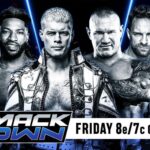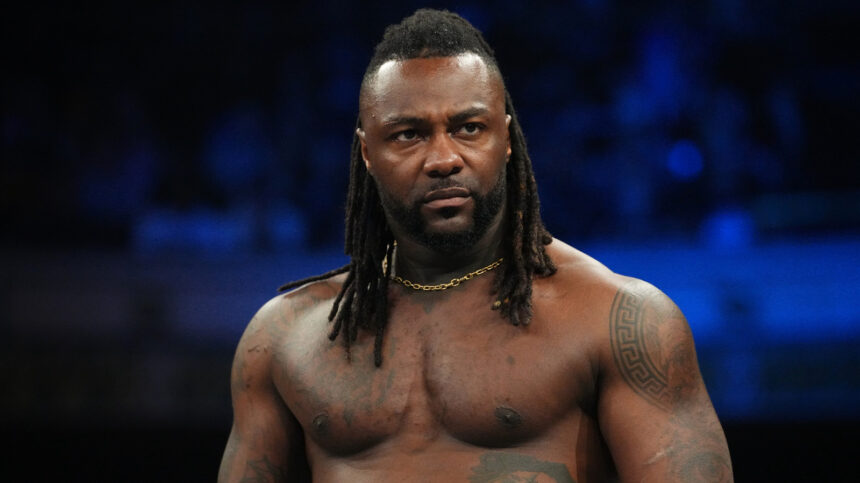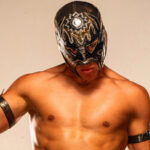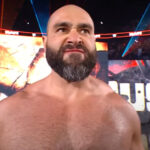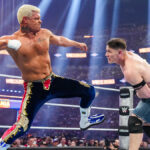The transition from military service to the wrestling ring is more common than one might think. Many wrestlers bring their military training, discipline, and resilience into their performances, which enhances their ability to thrive under pressure during matches. Notably, veterans like Lacey Evans have integrated their service into their wrestling personas, while legends such as Jesse Ventura occasionally reference their military backgrounds during commentary.
Although some wrestlers, like Sergeant Slaughter, have played characters rooted in military themes without serving, others have genuine military backgrounds. For instance, John Cena has often been associated with military imagery throughout his wrestling career, though his service was limited to portrayals in film rather than actual enlistment.
Countless wrestlers across various promotions have served in different branches of the military. Individuals like former AEW champion Swerve Strickland and Tama Tonga, who worked as an Air Force mechanic, showcase a side of wrestling that often goes unacknowledged in the spotlight.
Kevin Nash
Kevin Nash, recognized as a pivotal figure in the wrestling world as a founding member of the New World Order, led a diverse life before wrestling. Initially aiming for a basketball career, Nash played at the University of Tennessee and later in Europe until injury diverted his path. Following his sports career, he enlisted in the Army, serving in West Germany with the 202nd military police company and was eventually promoted to a specialist role.
In his podcast, he discussed the unique challenges of his height concerning Army recruitment standards, but he managed to enlist. After leaving the military, Nash made his wrestling debut in WCW in 1990 after transitioning from a stint in WWF in 1993, solidifying his legacy in the industry.
Randy Orton
Randy Orton’s brief service in the Marines turned controversial when he went AWOL twice and ultimately faced disciplinary action. After being tried under the Uniform Code of Military Justice, he served 38 days in the brig before focusing on his wrestling career in 2000.
In his WWE documentary, Orton mentioned he enlisted due to a fascination with firearms, highlighting that his experience during basic training was far from pleasant. Although he was set to star in “Marine 3,” he was removed due to complaints from actual Marines about his portrayal.
Bobby Lashley
Bobby Lashley, an Army veteran and notable wrestling figure, followed in his father’s footsteps by serving from 1999 to 2002 after college. His time in the military refined his amateur wrestling skills, which proved advantageous during his transition to professional wrestling with Ohio Valley Wrestling in 2005.
Lashley excelled as an amateur wrestler, capturing significant awards and even competed at the international level while in the Army. Although he sought to represent Team USA in the 2004 Olympics, a knee injury sustained during a bank robbery incident led him to WWE instead.
Verne Gagne
WWE Hall of Fame legend Verne Gagne served briefly in the Marines near the end of World War II. He enlisted in 1943 while also managing his college commitments at the University of Minnesota.
Upon entering the wrestling industry in 1949, Gagne rose to prominence as a promoter in the wrestling landscape, leading the American Wrestling Association and renowned for his storied career of winning multiple world championships.
Tama Tonga
Tama Tonga, known for his time in NJPW, served in the Air Force before his wrestling career. After enlisting in 2000, he reached the rank of Technical Sergeant while stationed at Whiteman Air Force Base.
His decision to pursue wrestling alongside his military duties paved the way for his professional debut in 2010, where he often credits his military experience for shaping his wrestling career.
Konnan
Former WCW star Konnan’s entry into the military was a result of his troubled youth, which led to mandatory enlistment after multiple arrests. Joining the Navy, he was stationed on USS Cape Cod and saw deployment in the Middle East during a turbulent period for U.S. forces.
Montez Ford
Montez Ford, who had a successful transition from military life to wrestling, joined the Marines in 2008 after completing high school. He chose military service over college to alleviate financial pressures on his family, and he believes it was the best decision he made.
Ford served for four years and achieved a perfect score on the physical fitness test before transitioning to WWE in 2013, where he faced challenges regarding his weight before finally signing in 2014.
Swerve Strickland
Former AEW champion Swerve Strickland dedicated eight years to the Army Reserves, having grown up in a military family and even living in Germany during his early years. He specialized in maintaining communication equipment and went through extensive training after basic.
Strickland credits the discipline and endurance gained during his service as beneficial in his wrestling career, helping him physically prepare for competition.
Trish Adora
Trish Adora, an emerging name in independent wrestling and a military veteran, served eight years as a military police officer and signal support specialist. Her military journey began after dropping out of college, motivated by a colleague’s encouragement to enlist.
During her deployment to Kabul in 2012, she pondered her wrestling aspirations, eventually training at the Dudley Boys Wrestling School after leaving the Army in 2015. Adora emphasizes how her military training helped her adapt to the rigors of wrestling.
Brian James (Road Dog)
Brian James, known as Road Dogg, served in the Marines before establishing his career in wrestling, which began prior to his enlistment. He achieved notable roles within WWE, including overseeing live events and writing for “SmackDown.”
During his military service from 1987 to 1993, he participated in Operation Desert Storm. Inducted into the WWE Hall of Fame, he has made significant contributions both in and outside the wrestling ring.
William Moody (Paul Bearer)
William Moody, famously known as Paul Bearer, had a diverse background that included military service in the Air Force from 1972 to 1976. Earning the rank of Sergeant, he continued to engage with wrestling during his time in the military.
Following his departure from the services, he ventured into funeral services before making a name for himself in wrestling by managing legendary figures like The Undertaker.
—
### Fan Take:
This exploration of wrestlers with military backgrounds highlights the intersection of two worlds where discipline and performance meet. It adds depth to the personalities in the wrestling business, showcasing how their life experiences shape their characters and ring personas.


